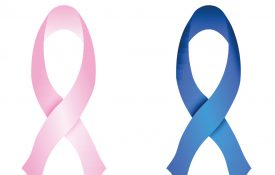-
New Research From Psychological Science
Read about the latest research published in Psychological Science: Show Me the Numbers: Precision as a Cue to Others' Confidence Alexandra Jerez-Fernandez, Ashley N. Angulo, and Daniel M. Oppenheimer The authors investigated a newly identified indicator of confidence -- precision. In the second of two studies, participants played a "The Price Is Right"-style game in which they had to give price ranges for three objects. Participants were provided with audience suggestions that were more or less precise before choosing members of the audience to help them with subsequent price estimations.
-
How Warm Is Your Brand?
The world is having a love affair with Costco. Fortune Magazine ranks the warehouse retailer as one of the world’s most admired companies, and only partly because of its commitment to social responsibility. Operating under the philosophy that happy employees deliver effective customer service, the company pays its employees extremely well — a sterling contrast to the way competitors like Wal-Mart and Kmart compensate workers. Costco’s practices even drew a shout out from President Obama during his State of the Union Address on Tuesday. Whether they realize it or not, consumers tend to regard companies the same way they do each other.
-
Violence and Its Origins
A panel at the 2014 APS Annual Convention, to be held May 22–25 in San Francisco, California, will explore the questions asked in such research, including whether there are evolutionary reasons behind our destructive past and whether there might be predictors of what kind of person is most prone to violence. Speakers include: APS Fellow John T. Monahan, University of Virginia. His research has focused on mental health law. APS Fellow Adrian Raine, University of Pennsylvania. He studies antisocial behavior from social, developmental, and neuroscience perspectives. Matthew K. Nock, Harvard University.
-
Infants Know Plants Provide Food, but Need to See They’re Safe to Eat
Infants as young as six months old tend to expect that plants are food sources, but only after an adult shows them that the food is safe to eat, according to new research published in Psychological Science, a journal of the Association for Psychological Science. The findings show that, after watching an adult put part of a plant and part of a man-made object in her mouth, infants at 6- and 18-months of age preferentially identify the plant as the food source.
-

Altruistic Acts More Common in States With High Well-Being
People are much more likely to decide to donate a kidney to a stranger — an extraordinarily altruistic act — in areas of the United States where levels of well-being are high, researchers find.
-
The Option to Quit Can Make You More Determined
Stephen King’s novel, Carrie, was rejected 30 times before it finally got published — and launched a legendary literary career. Thomas Edison failed thousands of time before he finally perfected the light bulb. Most of us aren’t aiming to create a revolutionary invention or get a novel published. But we all have professional goals, and will face at least some degree of failure or hardship in achieving them. In some cases, we have no choice but to keep trying. Giving up on a complex project you’ve been assigned at work could cost you your job.

